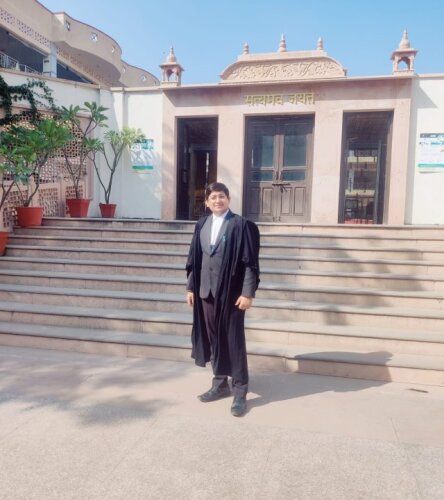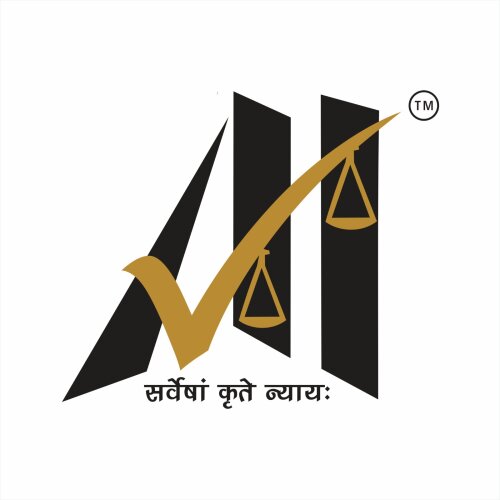Best Civil Rights Lawyers in Jaipur
Share your needs with us, get contacted by law firms.
Free. Takes 2 min.
List of the best lawyers in Jaipur, India
India Civil Rights Legal Articles
Browse our 1 legal article about Civil Rights in India written by expert lawyers.
- Waqf Judgment by the Supreme Court of India: Explained in Simple Words
- On 15 September 2025, the Supreme Court of India delivered an important ruling on the Waqf (Amendment) Act, 2025. This law introduced major changes to how Waqf properties (religious endowments made by Muslims for charity or religious purposes) are governed in India.Several petitions had been filed in the Court, challenging... Read more →
About Civil Rights Law in Jaipur, India
Civil Rights laws in Jaipur, India, focus on the protection and guarantee of the rights and liberties of individuals. These laws ensure the basic freedoms and equality of all citizens, regardless of race, gender, religion, or socio-economic status. Jaipur, being a significant city in the state of Rajasthan, aligns with national laws as well as specific local legislations designed to address the unique socio-cultural dynamics of the region. Civil Rights in Jaipur encompass a wide range of issues such as freedom of speech, freedom of assembly, equal access to education and employment, and protection against discrimination.
Why You May Need a Lawyer
There are several situations where individuals might find themselves in need of legal assistance concerning Civil Rights in Jaipur:
- Instances of workplace discrimination based on gender, caste, or religion.
- Cases involving police misconduct or brutality.
- Issues related to freedom of speech and expression, including censorship or restrictions on media.
- Disputes involving the right to peaceful assembly or protest.
- Cases of unfair treatment in educational institutions.
- Conflicts involving property rights, often influenced by discriminatory practices.
- Legal issues related to access to public services or amenities.
- Redressal for victims of hate crimes or communal violence.
- Ensuring proper implementation of affirmative action policies.
- Protection against unlawful detention and ensuring the right to a fair trial.
Local Laws Overview
Key aspects of local laws pertinent to Civil Rights in Jaipur include:
- The Constitution of India: Provides the fundamental rights for all citizens, including the right to equality, freedom, and protection against discrimination.
- Rajasthan Prevention of Anti-Social Activities Act: Designed to prevent acts that disrupt public order, with specific safeguards for the rights of individuals accused under this act.
- Rajasthan Prohibition of Child Marriage Act: A local legislation aimed at preventing child marriages, ensuring the rights of children are protected.
- Scheduled Castes and Scheduled Tribes (Prevention of Atrocities) Act: Provides specific protections for marginalized communities against discrimination and violence.
- The Right to Information Act: Ensures transparency and accountability in local governance, empowering citizens to access information crucial to their civil rights.
Frequently Asked Questions
What are fundamental rights in India?
Fundamental rights in India include the right to equality, freedom of speech and expression, freedom of assembly, freedom of religion, cultural and educational rights, and the right to constitutional remedies for enforcement of these rights.
How can I file a complaint if my civil rights are violated?
You can file a complaint with the relevant local authorities, such as the police or the State Human Rights Commission, or seek legal assistance from a civil rights lawyer to guide you through the process.
What protections exist against discrimination in the workplace?
India’s constitution and specific labor laws prohibit discrimination on the basis of race, caste, sex, religion, and more. You can approach the labor court or National Commission for Minorities if you face discrimination.
Can I challenge unlawful detention?
Yes, unlawful detention can be challenged through a writ of habeas corpus filed in the High Court or Supreme Court, seeking immediate release and protection of your rights.
Are there legal provisions against police misconduct?
Yes, victims of police misconduct can file complaints with the State Human Rights Commission, National Human Rights Commission, or pursue legal action in criminal and civil courts.
What actions can I take if my freedom of speech is restricted?
If your freedom of speech is restricted, you can challenge the action in court arguing the infringement of your fundamental rights as provided under Article 19 of the Constitution.
What are my rights to peaceful assembly and protest?
Article 19 of the Constitution guarantees the right to peaceful assembly. However, reasonable restrictions can be imposed. Unlawful restrictions or actions can be challenged in court.
How do I ensure a fair trial if I've been accused of a crime?
The Indian legal system ensures the right to a fair trial, including legal representation, the right to be heard, and the presumption of innocence. Consult a lawyer to safeguard these rights.
Where can I get legal help for property disputes influenced by discrimination?
Consult with civil rights lawyers who specialize in property laws to address any discrimination issues. Legal aid services and NGOs can also provide assistance.
What recourse do I have if I face discrimination in education?
File a complaint with educational authorities or approach the National or State Commission for Scheduled Castes, Scheduled Tribes, and Minorities, or seek judicial recourse.
Additional Resources
For further assistance and information, consider reaching out to the following resources:
- Rajasthan Human Rights Commission
- National Human Rights Commission
- National Commission for Minorities
- Legal Services Authorities providing free legal aid
- Local NGOs working on human rights and civil liberties
- University legal clinics offering pro bono services
Next Steps
If you need legal assistance regarding civil rights issues, take the following steps:
- Identify and document the issue carefully, including gathering any evidence or witness accounts.
- Consult with a civil rights lawyer who has experience with local laws and cases similar to yours.
- File a formal complaint with the appropriate local bodies such as the police or human rights commissions.
- If necessary, initiate legal proceedings with the help of your lawyer to ensure your rights are protected.
- Stay informed about your rights and participate in awareness programs to better understand legal protections available to you.
Lawzana helps you find the best lawyers and law firms in Jaipur through a curated and pre-screened list of qualified legal professionals. Our platform offers rankings and detailed profiles of attorneys and law firms, allowing you to compare based on practice areas, including Civil Rights, experience, and client feedback.
Each profile includes a description of the firm's areas of practice, client reviews, team members and partners, year of establishment, spoken languages, office locations, contact information, social media presence, and any published articles or resources. Most firms on our platform speak English and are experienced in both local and international legal matters.
Get a quote from top-rated law firms in Jaipur, India — quickly, securely, and without unnecessary hassle.
Disclaimer:
The information provided on this page is for general informational purposes only and does not constitute legal advice. While we strive to ensure the accuracy and relevance of the content, legal information may change over time, and interpretations of the law can vary. You should always consult with a qualified legal professional for advice specific to your situation.
We disclaim all liability for actions taken or not taken based on the content of this page. If you believe any information is incorrect or outdated, please contact us, and we will review and update it where appropriate.














